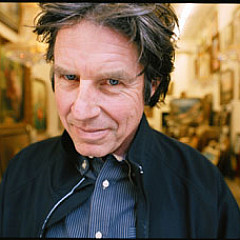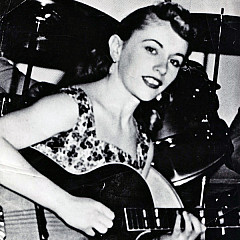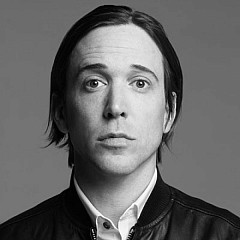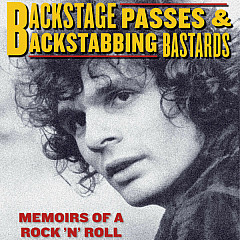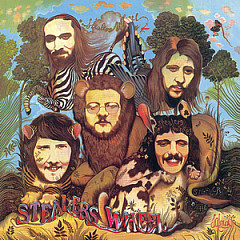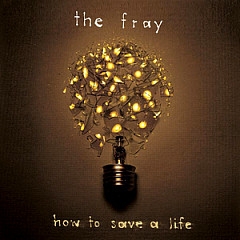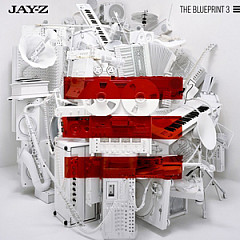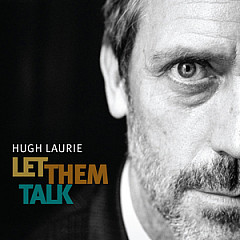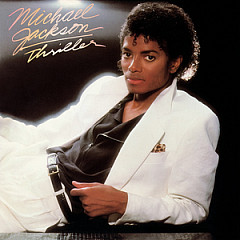That's what Blue Öyster Cult frontman Eric Bloom told the British magazine Sounds in 1978. Feeding the beast was "Don't Fear The Reaper," the most dark and mysterious of heavy metal hits, and the song that broke them big. Written by guitarist Buck Dharma, it was fodder for Saturday Night Live in their famous "More Cowbell" skit.
Sandy Pearlman, who died soon after this interview was conducted, put the band together in 1967 as Soft White Underbelly. He wasn't an official member, but served as manager, producer and lyricist. A rock critic for Crawdaddy!, Pearlman knew how to manipulate the music press for maximum effect. In 1971 he changed the name to Blue Öyster Cult after seeing Blue Point oysters on a menu (you may find other stories of how the name came about - this one comes from what Pearlman told Entertainment Weekly in 1991). The name, complete with the most famous umlaut in rock, was part of the mystique along with an intriguing hook-and-cross logo which might have something to do with Greek symbols or alchemy, and dark fantasy lyrics that were not printed on the albums, leading to a wide range of speculation as to just what this was all about.
"Reaper" was part of their fourth album, Agents of Fortune (1976). Their next one, Spectres (1977), was the first where the band appeared on the cover. It contains their monster hit "Godzilla" and a track Bloom wrote with Ian Hunter called "Goin' Through the Motions." In 1981, "Burnin' for You," another Dharma composition, got BÖC on MTV.
Although the band has not issued a new studio album since 2001, led by Bloom and Dharma they remain a popular live act, hitting the annual Euro summer festivals and keeping up a regular Stateside touring schedule. Bloom spoke with Songfacts about two months before BÖC was set to play the "Rock Carnival Festival" in New Jersey alongside Alice Cooper, Twisted Sister, Ace Frehley, and Daughtry. He was up for discussing songwriting within the band, the inspiration behind some of their classic songs, and his thoughts on the "More Cowbell" skit.
 Greg Prato (Songfacts): How did the songwriting work in Blue Öyster Cult back in the day?
Greg Prato (Songfacts): How did the songwriting work in Blue Öyster Cult back in the day?Eric Bloom: We had "band houses." And in the band houses, we had a variety of ways of coming up with tunes.
Around the early '70s, the 4-track tape recorder became commercially available, and once that happened, people started doing their own recording at home. When that happened, a lot of people started self-writing their material. People brought in finished songs.
That did not always mean that the finished songs became their own - very often, someone would bring in a finished song, and someone would say, "I like your music, but I think the lyrics need help," and then there would be some co-writing. So there was still some collaboration. But songs would go into pre-production, and there would still be collaboration before songs ever hit vinyl.
Songfacts: Did you prefer collaboration early on before the 4-track recorders, or after?
Bloom: I don't think there is any preference. The finished product, whatever was good, is really the preference. You'd rather have a good product than worry about who wrote what.
Songfacts: Do you primarily write all of your songs on the guitar?
Songfacts: I was looking through the songs you've written for Blue Öyster Cult over the years, and two that stuck out were "Goin' Through the Motions," which was co-written with Ian Hunter, and "Take Me Away" which was co-written with Aldo Nova.
So I took it home, and felt the same thing everyone else was telling him: the music was good. So I threw away his lyric and wrote my own lyric. That was basically the collaboration. It was my lyric and his music, and I wrote it overnight and re-sang it myself with my lyric. I brought it to BÖC and they liked it. It was during a time period when BÖC was working on a record, so it worked out perfectly.
And the Ian Hunter song, Ian came over to my house - we're friends. We went down to my basement and I had an idea, a little guitar lick that was the opening lick of the song, and he fleshed it out and we wrote the lyrics together. I would say he did 70/30 on that song, but we got equal credit. That was just an afternoon in my basement, really. That's how that song worked out.
Songfacts: Let's discuss specific songs that you co-wrote for Blue Öyster Cult, starting with "ME 262."
Songfacts: "Flaming Telepaths"?
Bloom: "Flaming Telepaths" was written I believe in either Eatons Neck or Dix Hills, en masse, in a collaborative fashion with all the band members in a room. I can't remember who came up with the germ of the idea, but when it came to creating the melody, I said, "I think it should go this way," and somebody said, "It should go that way." That's how all the credits came out. Sandy Pearlman wrote the lyric - it's one of those sci-fi impenetrable lyrics. He had a lot of influence from Lovecraft and a variety of sci-fi and fantasy influences.
Songfacts: "Take Me Away"?
Bloom: I wrote the lyric. It was maybe inspired by the movie Cocoon. If the aliens come, I'm ready to leave... if they're "good guy" aliens. [Probably not inspired by Cocoon, which was released in 1985 - two years after the song.]
Songfacts: "Goin' Through the Motions"?
Bloom: It's about a backstage meeting with a young lady.
To thee I dedicate this photograph
I'll even sign it 'love to you' again
And when it's faded and forgotten in some book
You'll sometimes look
It's about a typical backstage romance. It's pretty obvious what it's about.
Bloom: That's a Michael Moorcock lyric. Michael, I wrote three songs with him. He sent me lyrics by mail - this is pre-Internet. I got in touch with him as a fanboy, and then we met up. We had lunch together, and he started mailing me lyrics. "The Great Sun Jester," "Veteran of the Psychic Wars," and "Black Blade" - those are the three songs. He sent me the lyrics and then I wrote the tunes. I think a couple of them were co-written with my friend, John Trivers, and they were all written in my basement. All the lyrics were Moorcock, and the lyrics were adapted and chopped up by me, the melodies are by me, and the music by just me and Trivers.
Songfacts: What are your thoughts on the Saturday Night Live "More Cowbell" skit?
Bloom: I saw it live on my TV in my house, and did not know it was going to be on, so I was more shocked than amused when it was on. I certainly see the humor after it was on. It certainly has legs - it has become part of Americana at this point. Somebody brings it up to me on a regular basis - somebody just asked me about it today. I'm in Detroit, and we're doing a show in Detroit today, and somebody at the show here today asked me about it.
I was reading a car magazine a couple of years ago, and it said, "This car, while the acceleration and the handling are pretty good, it still needs more cowbell." So, it's really crossed over to the American language. It's pretty interesting. I don't even know if Will Ferrell realizes how much it's crossed over, and he wrote it.
Songfacts: And how do you feel about performing "(Don't Fear) The Reaper" today? Do you still enjoy performing that song?
Bloom: Oh sure. We perform it every night.
For more, visit blueoystercult.com.
More Songwriter Interviews

